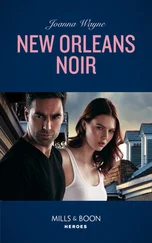Джон Краули - New Haven Noir
Здесь есть возможность читать онлайн «Джон Краули - New Haven Noir» весь текст электронной книги совершенно бесплатно (целиком полную версию без сокращений). В некоторых случаях можно слушать аудио, скачать через торрент в формате fb2 и присутствует краткое содержание. Город: New York, Год выпуска: 2017, ISBN: 2017, Издательство: Akashic Books, Жанр: Детектив, на английском языке. Описание произведения, (предисловие) а так же отзывы посетителей доступны на портале библиотеки ЛибКат.
- Название:New Haven Noir
- Автор:
- Издательство:Akashic Books
- Жанр:
- Год:2017
- Город:New York
- ISBN:978-1-61775-541-5
- Рейтинг книги:5 / 5. Голосов: 1
-
Избранное:Добавить в избранное
- Отзывы:
-
Ваша оценка:
- 100
- 1
- 2
- 3
- 4
- 5
New Haven Noir: краткое содержание, описание и аннотация
Предлагаем к чтению аннотацию, описание, краткое содержание или предисловие (зависит от того, что написал сам автор книги «New Haven Noir»). Если вы не нашли необходимую информацию о книге — напишите в комментариях, мы постараемся отыскать её.
New Haven Noir — читать онлайн бесплатно полную книгу (весь текст) целиком
Ниже представлен текст книги, разбитый по страницам. Система сохранения места последней прочитанной страницы, позволяет с удобством читать онлайн бесплатно книгу «New Haven Noir», без необходимости каждый раз заново искать на чём Вы остановились. Поставьте закладку, и сможете в любой момент перейти на страницу, на которой закончили чтение.
Интервал:
Закладка:
No, Lionel reverted suddenly to Lionel.
“I told them they should not be carrying something like this around and threatening people. I told them it’s wrong. And I confiscated it.”
Confiscated it. Good Christ.
And knife in one hand and French horn in the other, Lionel continued up Edgewood Avenue.
Those are the details of that afternoon, related first to us, and shortly thereafter to the astonished cops. With one notable difference.
“So what happened to the knife?” Perez asked him.
“I don’t know,” said Lionel.
That straightforward, honest Midwestern face. That do-gooder Boy Scout demeanor. “Things were happening so fast, I didn’t notice.”
“Too bad. It would make prosecuting this a slam dunk.”
“My testimony’s not enough?”
Perez looked at that big, honest face. A Midwestern French horn — playing Yalie. Assaulted by three black kids. And there were no actual stab wounds, anyway, thank God, so the knife was not crucial evidence anyway.
“Yeah, your testimony is probably enough.”
And it was.
Two of the three kids went straight into juvie. Their first port of call, their entry at last, into the criminal justice system. Where they no doubt turned from rambunctious, chaotic, delinquent fifteen-year-olds to angry, hate-filled, avenging adults. Where, as the overwhelming odds and statistics predict, they learned more violence. Committed more crimes. Graduated from menace to full-fledged criminals. Edgewood started them on their path. But Lionel Patton hurried them along it. Pushed them into the system, started their formal criminal educations.
The French horn case was permanently dented. The horn inside survived unscathed. I went to see Lionel performing Mahler’s Fifth.
It’s got a French horn solo.
The solo he’d been practicing incessantly. The solo he’d been whistling.
Lionel performed it with passion. With beauty.
He had walked to the performance. Walked Edgewood.
So I knew he had the knife onstage with him in magnificent Woolsey Hall.
A few weeks later, in the process of buying another dime bag, Roger and I were surprised to be invited into Keneisha’s apartment.
It was quiet, warm, a refuge from Edgewood Avenue, and a heartbreaking display of middle-class aspiration. Comfy couch. Big TV. Big stereo speakers. A song of consumerism. Not knowing anything else. Not aspiring to anything else. A living room filled with objects. Filled with want.
And amid our straightforward transaction, out of nowhere, with no preamble, but clearly because she wanted us to know, she confirmed my original deduction: “I tol’ them to leave you alls alone, you know. And they did too, mostly. But they couldn’t leave that one boy, they said. They tol’ me they just couldn’t leave that one boy. And I can’t control them.” She shrugged. “Ain’t nobody can.”
There is no understanding.
Knife in one hand. French horn in the other.
That is how he continued to walk Edgewood for the rest of the semester.
Not quite the same happy, cheerful Midwesterner. Never again.
Now taking that knife, a little bit of the streets of Edgewood, with him everywhere he walked. Just like his French horn.
Don’t mess with Lionel.
Part III
Death or Glory
Innovative Methods
by Alice Mattison
Lighthouse Point Park
A cloud obscured the sun as we rode down the shadowed driveway into the park. The staff ushered the kids off the bus, watching to make sure nobody strayed. Wind blew across Long Island Sound. The kids looked smaller here than inside the residence, though some were almost adults. The jagged line of teenagers moved toward the massive old stone lighthouse above the rocky beach, the restored carousel, and the pavilion with its picnic tables.
We let them hang out on the stony shore before lunch, waving them off the battered wooden fishing pier, which was posted with Danger signs. It was too cold for swimming. The water was gray, its surface broken by wind. Some kids didn’t go near the water, but others tried to see how close they could get without wetting their shoes, and ran back as the water slid forward.
I zipped up my windbreaker and pulled the sleeves over my hands. I’d been working as a clinician at the residence for a little less than a year, and this was my first picnic. I usually saw the kids one at a time for psychological testing and counseling, and some didn’t recognize me here. Maybe I looked different — they certainly did. I hadn’t known that Luis owned a Yankees jacket, that laconic Tiffany had a loud voice and spoke in obscenities.
We distributed lunch in the pavilion. Gulls wheeled and descended. Above the woods beyond the parking lot, two hawks circled.
Next the kids would ride the carousel, and after that, I’d been told, Dr. Frank always offered boat rides. The kids couldn’t learn Frank Gillingshurst’s last name, and by analogy some called me Dr. Jennifer, though I’m an MSW. Dr. Frank had driven his black pickup, with his boat on a trailer, and parked in a lot near the water. A staff member would go along on each boat ride, and others would keep an eye on those waiting on land. Years ago, a fifteen-year-old had run away from the picnic and was picked up by the police after hitchhiking halfway across Connecticut.
As I ate my apple, Dr. Frank strode toward the trash can and opened his big, muscular hand above it, releasing the remains of his lunch. He walked away without looking back; a napkin floated to the ground. He was a well-built white man with thick eyebrows. He was somewhat famous: Frank Gillingshurst, early in his career, had become a leading practitioner of an innovative form of child therapy involving unusual informality between therapist and client, and sometimes bluntness on the part of the therapist. He’d published a book, which I’d read. It made me uncomfortable, though I couldn’t quite say why.
Dr. Frank climbed into his truck. The black pickup with the boat trailer rolled out of the lot, the slim white speedboat large and anomalous on land. The truck descended a sloping gravel road to the boat launch below, then turned and backed slowly toward the water. Dr. Frank got out and did something to the white boat. He returned to the truck, backed up a little farther, then climbed out again. A girl said she needed the bathroom, and I accompanied her. When I returned, Dr. Frank had eased the boat into the water, where it rocked slightly. The anchor, a coffee can filled with concrete, lay on the shore, and the truck was on its way back to the parking lot. So far that day, he had not acknowledged my presence.
Dr. Frank was the only member of our party, resident or staff member, who didn’t ride the carousel. We had full use of it for an hour. Apart from one or two other supervised groups, the park was empty.
I rode a black horse that went up and down. The happy, tinny music was — paradoxically — sad. As a child, I loved and feared carousels. This one exhilarated me, and it made me forget what was going on in my life. Frank stood staring, and each time I circled I saw his gaze, his thick pale eyebrows. When I stepped off the platform, I stumbled.
He looked at me at last. Okay, Jen?
A little dizzy, I said. Your turn.
I’m good, he said. The yearning music started up once more. The horses rose up and plunged down, their graceful legs bent forever, seeming taut with ungratified desire as they circled within the wooden shell, which looked as if a strong wind might blow it down.
We shouldn’t have let him come, Frank said.
Who? I said, though I knew.
Gavin. He hasn’t earned a picnic.
The picnic isn’t something they earn, I said.
Читать дальшеИнтервал:
Закладка:
Похожие книги на «New Haven Noir»
Представляем Вашему вниманию похожие книги на «New Haven Noir» списком для выбора. Мы отобрали схожую по названию и смыслу литературу в надежде предоставить читателям больше вариантов отыскать новые, интересные, ещё непрочитанные произведения.
Обсуждение, отзывы о книге «New Haven Noir» и просто собственные мнения читателей. Оставьте ваши комментарии, напишите, что Вы думаете о произведении, его смысле или главных героях. Укажите что конкретно понравилось, а что нет, и почему Вы так считаете.
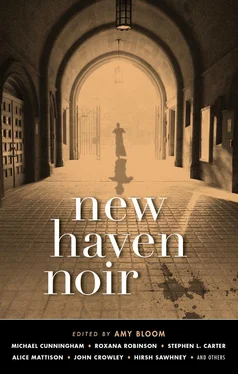
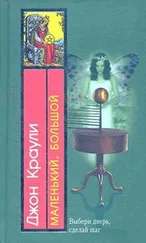
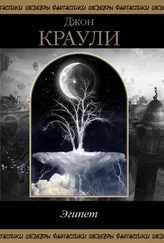


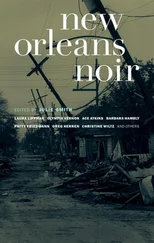
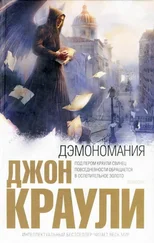

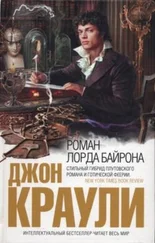

![Джон Краули - Ка - Дарр Дубраули в руинах Имра [litres]](/books/406053/dzhon-krauli-ka-darr-dubrauli-v-ruinah-imra-litre-thumb.webp)

